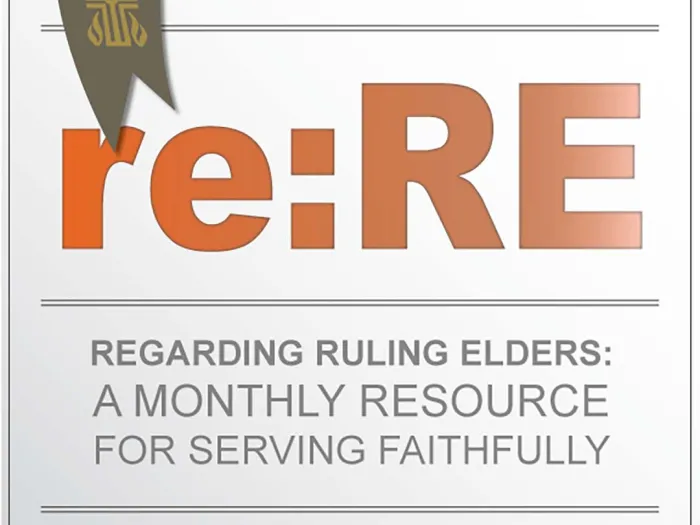Regarding Ruling Elders: A Monthly Series for Serving Faithfully
Congregational Nominating Committees

The PC(USA) Book of Order calls for ruling elders to “exercise leadership, government, spiritual discernment, and discipline and have responsibilities for the life of a congregation as well as the whole church ...” (G-2.0301). As ruling elders are called to ordered ministry for life, it is important to approach the work of nominations to this role with humility, open hearts, and open minds. The congregational nominating committee has the responsibility to provide for the leadership of both the local congregation and the larger church through its councils.
The nominating committee should express the rich diversity of the congregation’s membership and guarantee participation and inclusiveness (Book of Order, F-1.0403). Consider a diversity of ages (including young people), sexual orientation, and members of other historically marginalized communities, to serve on the committee. Admittedly, this can be difficult in smaller congregations; however, diversity can and should be more than simply a matter of race, ethnicity, or gender.
Other specifications about committee membership can be found in G-2.0401.
At least one member of the committee shall be an elder serving on session; usually, this is the chair. In addition to guiding the work of the committee, the chair has the responsibility of keeping the session informed of the committee’s progress. As the committee meets to discern God’s will, it is important for the congregation to support their work. This can be done by lifting the committee up in prayer and honoring the confidential nature of the work. For the session and other ruling elders not involved, supporting the committee can be done by providing suggestions and/or feedback about particular people under consideration. However, the committee must be free to follow the voice of the Spirit without pressure or influence from the session or the congregation.
As work begins, careful consideration should be given to the following:
- Does a potential candidate have spiritual gifts that would benefit the congregation and the larger church?
- Does the candidate demonstrate emotional maturity?
- Does the candidate have the physical and mental stamina to carry out the duties of the office?
There is often the temptation to nominate people based on their perceived gifts. “Andre is a good handyman, so he should chair the Buildings and Grounds committee.” “Maria is great with numbers, let’s make her Finance chair.” While Andre and Maria may indeed take on these responsibilities if elected, it’s generally good practice to allow the Spirit to work through the session in determining committee assignments.
Once the committee has assembled a list of potential candidates, it’s time to make the ask. For the purpose of spreading the work and lightening the load, the chair may assign the task of approaching candidates to various committee members. When inviting people to serve, committee members should be prepared to answer questions regarding the role and responsibilities of the office of ruling elder, time commitments, and any other issues that may affect a candidate’s decision. If the committee is struggling to fill vacancies, it may be time to reconsider the size and configuration of the session and its committees.
Questions for Discussion:
- What other qualities and gifts would you suggest when considering someone for service as a ruling elder?
- In what ways did you feel the movement of the Holy Spirit as you considered serving as a ruling elder?
While the work can be overwhelming, it can also be very rewarding. Flexibility and being open to the voice of the Holy Spirit are the keys to successfully completing the work God has called the nominating committee to do.
Nathan Sobers is a ruling elder, serving as the ministry leader of Stonewall Ministries, a 1001 New Worshiping Community located in Cathedral City, California.
You may freely reuse and distribute this article in its entirety for non-commercial purposes in any medium. Please include author attribution, photography credits, and a link to the original article. This work is licensed under a Creative Commons Attribution-NonCommercial-NoDeratives 4.0 International License.




